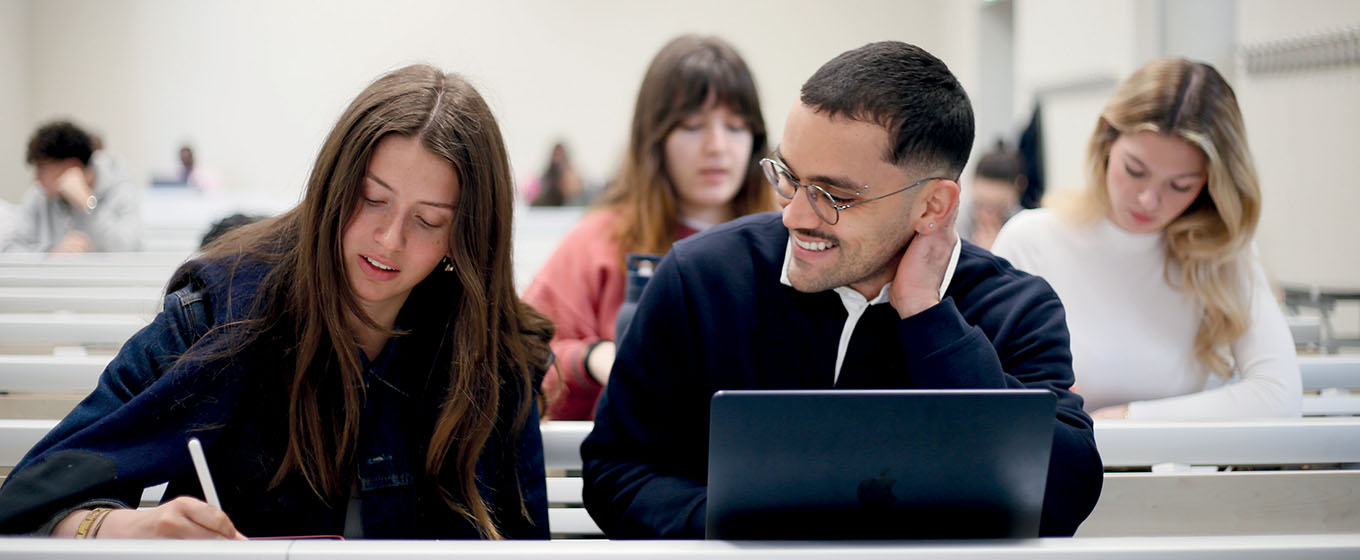Beyond Knowledge: Universities and Their Role in Shaping Society

More than places of learning, universities today must be spaces where ethical leadership, critical thinking, and bold imagination converge – where students are not only trained to succeed but equipped to navigate complexity with purpose and integrity.
What defines a meaningful education in uncertain times? How do we nurture minds – not merely for careers – but for responsibility, creativity, and the courage to ask deeper questions?
At Università Cattolica del Sacro Cuore, we believe the path forward is not found in easy answers, but in bold questions. As our Rector, Professor Elena Beccalli, reminds us, the future belongs not to those who rush to answer, but to those who dare to question deeply.
Looking toward the future means exploring the crucial themes that define our times: artificial intelligence, migration, sustainability, and the evolution of education itself. These issues invite us to consider questions that extend far beyond technical expertise, touching on moral, cultural, and fundamentally human perspectives. What kind of intelligence do we value in an era driven by technology? How do we define justice in a world of shifting borders? What models of growth are sustainable when our planet demands careful stewardship? Ultimately, we must reflect on the evolving role of universities – not only as places of learning but as institutions capable of shaping broader society.
In an age marked by distraction and superficial engagement, Professor Andrea Gaggioli reminds us that education must reclaim its essence: the capacity "to create possible worlds." Historically, the Greek skholē signified leisure, contemplation, and the joy of discovery. Can we return to such roots? At Università Cattolica, we believe it is essential. A university’s mission is not to standardise thought, but to liberate it.
We also recognise that universities must broaden their self-perception beyond their primary function of imparting knowledge. Traditionally, universities have viewed themselves primarily as institutions dedicated to knowledge acquisition and dissemination. However, it is crucial that they embrace a wider role – actively shaping the world beyond academia.
By expanding their vision, universities can meaningfully contribute to global dialogues and actions, impacting society far beyond the classroom.
This commitment is clear in our interdisciplinary research and global collaborations. It guides our Educational Pact for Artificial Intelligence, ensuring technology enhances human flourishing. It breathes life into our Africa Plan – partnership built on reciprocity, empowering local leadership and integral development across borders. It resonates in the work of alumni such as Lorenzo Acconciamessa, whose advocacy at the European Court of Human Rights reminds us that justice, like education, must be defended every day.
The next decade poses significant challenges to educational institutions, demanding thoughtful reflection on their broader societal role. Universities must move beyond merely equipping students with knowledge and skills, embracing instead the responsibility to cultivate ethical leaders who can positively influence the world around them. Rector Elena Beccalli emphasises this commitment, stating clearly:
“Our ambition is not only to stand among the leading universities globally but to actively contribute to the betterment of the world.”
This vision requires educating students not simply to adapt, but to lead with imagination and responsibility – navigating complexity and envisioning new possibilities.
The future of education isn't just digital or global – it is fundamentally human.
Let's not only explore the future: let's question it, shape it, and serve it, together.

